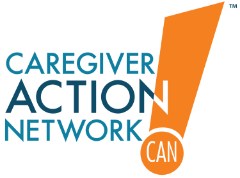Set boundaries
You may have many responsibilities in addition to being a caregiver, like a career or other loved ones who rely on you. It’s okay to say no sometimes if it feels like too much to handle.
As a caregiver for someone living with schizophrenia, your role is vital
You might help your loved one remember to take their medication. You might coordinate with their care team and monitor their symptoms. You may also be their main source of emotional support.
Helping someone with schizophrenia take their medication every day can be challenging. UZEDY® is a long-term treatment option that doesn't require a daily pill. It can be given every one or two months.
LEARN MORE ABOUT UZEDY
Caregivers also need and deserve to feel supported
Being a caregiver for someone living with schizophrenia can be a lot to handle. You might experience stress, frustration, or even burnout. It’s important to remember to care for yourself as you care for your loved one. Here are some ways to practice self-care:
Set boundaries
You may have many responsibilities in addition to being a caregiver, like a career or other loved ones who rely on you. It’s okay to say no sometimes if it feels like too much to handle.
Ask for help
See if someone can share responsibilities with you, so you can carve out time for yourself. Use that time to do things you enjoy or that help you relax.
Be open
You may want to talk to someone you trust, like a close friend, relative, or therapist. Someone you can share your thoughts and feelings with.
They’re here to help you

NATIONAL ALLIANCE ON MENTAL ILLNESS
Education, programs, and support groups for those affected by mental illness
Monday-Friday
10 AM-10 PM ET

SCHIZOPHRENIA & PSYCHOSIS ACTION ALLIANCE
Online and in-person support groups for people with schizophrenia and those who care for them
Monday-Friday
9 AM-5 PM ET

CAREGIVER ACTION NETWORK
Support for caregivers of
loved ones with chronic conditions, disabilities, or diseases
Monday-Friday
10 AM-10 PM ET
State or local resources may also be available to help you, including social services or respite care.
UZEDY® (risperidone) extended-release injectable suspension is a prescription medicine used in adults.
What is the most important information I should know about UZEDY?
UZEDY can cause serious side effects, including an increased risk of death in elderly people who are confused, have memory loss, and have lost touch with reality (dementia-related psychosis). UZEDY is not approved for use in patients with dementia-related psychosis.
Do not receive UZEDY if you are allergic to risperidone, paliperidone, or any of its components.
UZEDY may cause serious side effects, including:
The most common side effects of risperidone in patients with
These are not all the possible side effects of UZEDY. Tell your healthcare provider if you have any side effect that bothers you or that does not go away. For more information, ask your healthcare provider or pharmacist.
Do not drink alcohol during treatment with UZEDY.
Before receiving UZEDY, tell your healthcare provider about all your medical conditions, including if you:
Tell your healthcare provider about all the medicines you take or plan to take, including prescription and over-the-counter medicines, vitamins, and herbal supplements. UZEDY and other medicines may affect each other.
You are encouraged to report side effects of prescription drugs to the FDA. Visit www.fda.gov/medwatch, or call 1-800-FDA-1088.
For more information about UZEDY, see the full Prescribing Information, including Boxed WARNING, or talk to your healthcare provider.